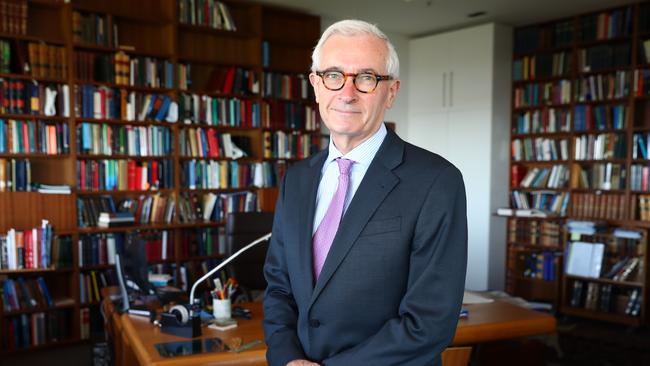Media organisations urge Federal Court to rethink snub of public’s ‘right to know’
A coalition of some of Australia’s biggest media organisations has urged the Federal Court to repeal its controversial decision to restrict journalists’ access to key court documents.

A coalition of some of Australia’s biggest media organisations, including the ABC, Nine Entertainment and News Corp, has urged the Federal Court to repeal its controversial decision to restrict journalists’ access to key court documents, labelling the move “an undeniable incursion upon open justice”.
In a letter to Chief Justice James Allsop last week, the Australia’s Right to Know group said the new rule – which denies journalists access to key information about legal matters until after a case’s first hearing – was a “scorched earth” solution to a limited problem”.
“The amendment will have an unavoidable chilling effect on reporting,” the letter says.
The ARTK coalition expressed particular frustration that the court changed the access rule without any prior consultation with media outlets, and without any apparent consideration given to the impact of the move on the principle of open justice.
“Had consultation been engaged in, the amendment may still have been made but media organisations would have had the opportunity to bring the full effect of the amendment on open justice to the judges’ attention and to make submissions in support of this important issue,” the letter says.
In early January, almost three weeks after the court’s 51 judges had quietly agreed to update its internal rule, the amendment was publicly revealed with an explanatory note which stated that the change did not require any external consultation “due to their very limited impact for parties … and the fact that they are administrative or internal in nature”.
In late January, dozens of reporters and editors co-signed a letter to Justice Allsop to register their objection to the rule change, but the court defended its move, citing “undesirable consequences” arising from the freedom of allowing journalists unlimited access to court documents that aren’t the subject of any suppression orders.
The media coalition’s opposition to the move is ultimately rooted in its concern that by limiting the access of journalists to relevant papers (particularly originating applications and pleadings or similar documents), the Federal Court is effectively hindering the capacity of reporters to fairly and accurately report matters within that legal jurisdiction.
The ARTK letter quotes an observation of the Federal Court in a previous case: “The publication of fair and accurate reports of court proceedings is therefore vital to the proper working of an open and democratic society and to the maintenance of public confidence in the administration of justice.”
In response to the court’s assertion that the rule change put additional safeguards around “potentially sensitive or confidential content”, and addressed concerns that a respondent might first learn of a claim against them via a report in the media, the ARTK countered: “The respondent might be surprised by it.
“The respondent might even be embarrassed by it.
“But surprise and embarrassment are not proper grounds for suppression.
“In any event, ordinary members of the public are well aware of the difference between allegations made in courts and findings made by courts.”
Australia’s largest union for journalists, the Media, Entertainment & Arts Alliance, also wrote to the Federal Court last week to express “deep concerns” about the court’s rule change.
“It seems the reasons behind the amendment are directed at addressing reputational issues for a party to a proceeding,” says the letter, signed by the union’s federal media section president Karen Percy.
“In MEAA’s view, reputational issues do not constitute exceptional circumstances and therefore do not justify such a departure from the open justice principle.”
On Sunday, a court spokesman said: “No further changes are planned to the Federal Court’s non-party access rules.
“The Right To Know letter will be responded to in due course.”






To join the conversation, please log in. Don't have an account? Register
Join the conversation, you are commenting as Logout